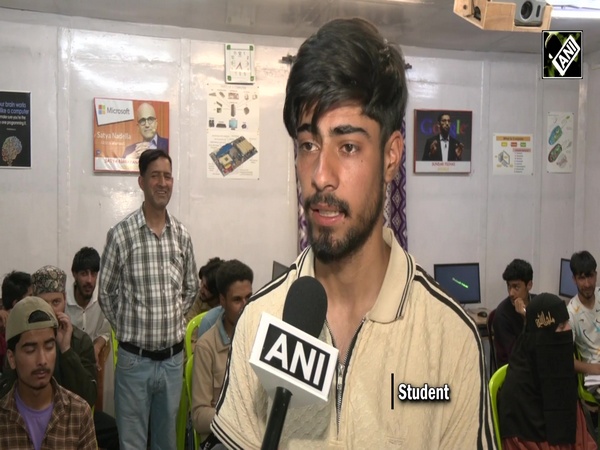Hong Kong bars some journalists from covering official ceremonies during Xi's visit
Jun 30, 2022

Hong Kong, June 30 : Ahead of Chinese President Xi Jinping's visit to Hong Kong later this week to mark the 25th anniversary of the city's handover from Britain to China, Beijing has barred journalists from leading international media organizations from covering official ceremonies.
According to the Hong Kong Journalist Association (HKJA), at least 10 journalists working for local and international organizations had their applications to cover the events rejected for "security reasons", reported CNN.
"With media unable to send journalists on the ground, the HKJA expresses utmost regret over the rigid reporting arrangements made by the authorities for such a major event," the press group said.
In his first trip outside mainland China since the start of the pandemic, Xi is coming to Hong Kong to mark the 25th anniversary of its return to Chinese rule -- a highly symbolic event at a pivotal time for both the city, and Xi himself.
The former British colony is midway through the 50-year promise of "a high degree of autonomy," given by Beijing under a framework known as "one country, two systems." It is also swearing in its newly appointed leader, hardline former police officer John Lee.
Meanwhile, China has thrown a media shield around Xi's visit to Hong Kong and barred journalists from leading international media organizations, including Reuters and CNN from covering official ceremonies.
Xi is only months away from finishing his first decade in power -- and is widely expected to seek an unprecedented third term at a key meeting of the ruling Communist Party this fall.
The two-day trip is a timely declaration of political victory for Xi, who has brought Hong Kong to heel with a sweeping national security law following the 2019 anti-government protests.
In just two years, critics say, the law has been used to crush the city's opposition movement, overhaul its electoral system, silence its outspoken media and cripple its once-vibrant civil society.
Reuters, Agence France-Press (AFP), and the Hong Kong-based South China Morning Post were among the outlets whose reporters were blocked from covering the ceremonies, according to the HKJA.
Reuters reported that two of its journalists had been barred from covering the handover ceremony and inauguration of incoming Hong Kong Chief Executive John Lee.
Journalists who had their applications denied would not be able to cover the national flag raising ceremony and the swearing in of Lee, the city's new leader and former security chief, reported CNN.
The government's Information Services Department issued invitations to news organizations on June 16, allowing only one journalist per outlet to cover each event.
Each media representative was required to conduct daily PCR tests starting June 26 -- before official approval or rejections were issued on June 28 -- and to go into hotel quarantine on June 29 as part of coronavirus-related prevention measures.
The Foreign Correspondents' Club (FCC) in Hong Kong said that it was "deeply concerned" about the reports that accreditation had been denied, reported CNN.
"In the past, similar official events were open to media registration without invitation or vetting," the FCC said in a statement Wednesday.
"The FCCHK views these restrictions -- enforced without detailed explanation -- as a serious deviation from that stated commitment to press freedom," it said.
Hong Kong was once home to one of Asia's most vibrant media scenes, and a place that professed freedom of speech and freedom of the press. But over the last few years, it has lost almost all its home-grown independent news outlets.
Beijing imposed a national security law on the city in the wake of anti-government protests in 2019. Since then, critics allege some of the freedoms China promised to protect at the handover 25 years ago have been curtailed.
The Hong Kong government dismisses suggestions that press freedom has been undermined, but the future of local independent reporting looks bleak.
Some of the city's biggest pro-democracy media outlets have been toppled after enormous government pressure, a series of arrests and police raids on their newsrooms.


















